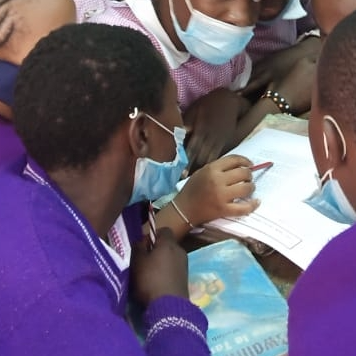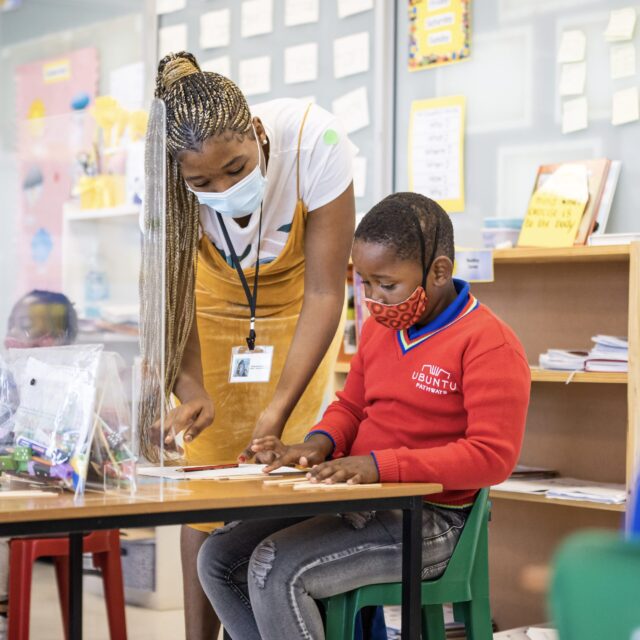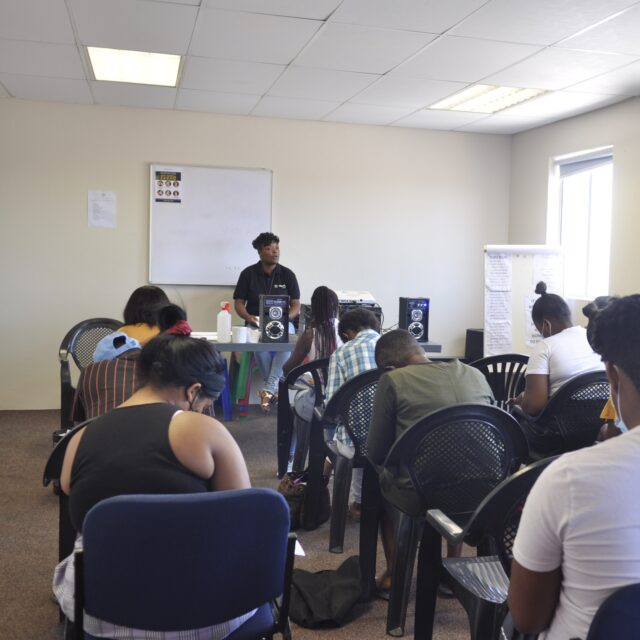Carine Umutoniwase is a Kenya ONE Champion and the founder of Footprints for Change.
COVID-19 has crippled education systems worldwide, leading to the closure of schools for months in countries like Kenya. This saw millions of children out of school, confined to their homes.
E-learning was instituted as a response to the learning loss that resulted from schools closing — but this increased inequality among learners, especially for those in underserved and marginalized communities that have limited supply to electricity and households that cannot afford devices to connect to the internet.
COVID-19 widens inequality in education
This was the case for thousands of children out of school. It was an unusual scene to always see children playing and hanging around in the community for months that they were always in school. While conducting research to assess the impact of COVID-19 on learning for vulnerable students a month after schools had closed in Kenya, the team at Footprints for Change in Mathare found that the majority of the children had no stable support system to help them continue learning while at home.
Furthermore, research revealed a great disparity in regards to connectivity devices, such as smartphones, radios, and TVs, for learners in informal settlements from Alternative Provision of Basic Education and Training (APBET) schools — often referred to as private schools in underserved communities. APBET schools account for more than 2 million learners across Kenya.
During the rapid assessment conducted with learners in Mathare, they noted that they had already started forgetting what they had been taught earlier in the year 2, months after schools had been closed. The recent results from the national assessment on learners conducted by the government has provided evidence for learning loss with the majority of the children performing poorly, especially for schools in rural and marginalized areas.
Education is seen as a gateway to a better life, especially for the millions living in protracted poverty conditions. But during COVID-19, learners could no longer go to schools or seek guidance from their teachers. Parents were overwhelmed with the responsibility of fending for their children and still follow up on them while they were at home. The majority of the kids in Mathare went about their day as they felt; spending time with their friends, playing without any caution to mask wearing, doing house chores, and for some, helping their parents with their businesses in the community. Community leaders and teachers lamented that we were losing children to vices like drug abuse with cases of child abuse and teenage pregnancy on the rise.
A timely intervention to stop learning loss
The Kiota COVID-19 Mathare Education Support project was a timely intervention by the F4C team; it gave us an opportunity to start bridging the learning loss of thousands in the community. At its inception in September, informed by the rapid assessment, the team came up with a home-based learning model that would see over 120 learners in Mathare get support for the next three months before schools reopened. At a time when schools were uncertain of how to support their learners in Mathare, F4C through the support Grassroots Nest Innovation for Change, reached out to its partner schools, churches, and organizations to help identify and mobilize learners in classes 6, 7, and 8 for the project.
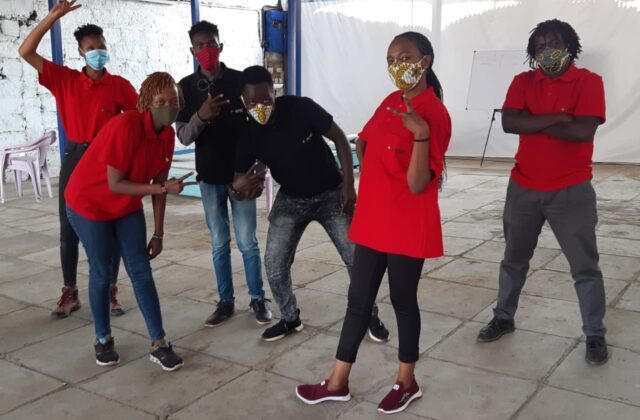
In order to make this work, F4C needed to figure out a safe way of interacting with the learners, following COVID-19 guidelines and restrictions. The team adopted the ‘nyumba kumi’ system and grouped the learners into groups, dubbed learning circles, with 10 kids in each circle. The home-based learning model also sought the support of youth leaders in the community to act as mentors and tutors each coordinating one learning circle. This gave an opportunity to university students who were also stuck at home due to closure of schools.
Further, we were able to engage three teachers to support the classes and come up with content to be used in the learning circles. The F4C team would receive revision notes and questions from the teachers for compilation and designing into weekly worksheets to be given to the learners on a door-to-door basis. Mentors would take the worksheets to their 10 learners at home; they would also go through the content with the learners offering support where the kids had challenges. The worksheet also incorporated fun into learning and would offer puzzles and stories to help the kids continue to learn.
Seeing success and expanding the program
It is amazing how the solutions to the problems we face are often in front of us; we just need to be people who care enough to seek and act. Soon we started getting feedback from the mentors and the learners that there was improvement, especially on subjects such as math and science where most learners shied away. Parents also reached out asking whether their children could receive the weekly worksheets and guidance. The mentors are a key pillar to the Kiota program; they were instrumental in helping engage parents in their children’s education and in identifying the talents among their kids.
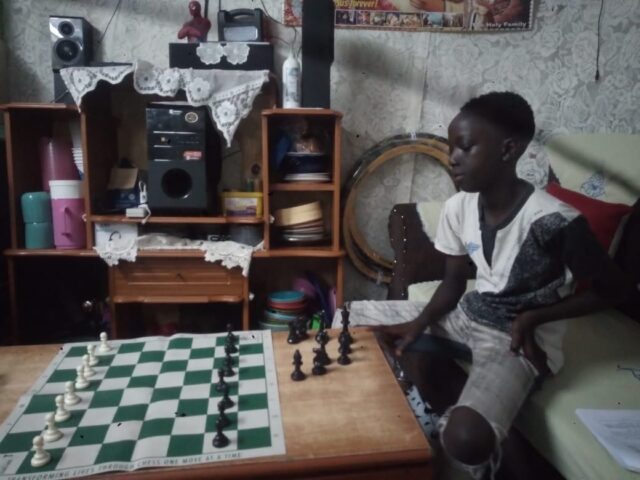
The Kiota Education Support project has been on ground in Mathare for five months and is now engaging 500 learners at school and extending support at home. At the beginning of the year, the program design was improved by incorporating feedback from the learners and partners. We started chess lessons in the learning circles as part of creative life skills sessions where the learners receive support from their mentors. Our mentors identified more gaps that we are currently trying to offer support; for instance we have two learning circles for teen mums who have not been able to rejoin school and due to stigmatization might not be able to continue with their learning.
APBET schools do not have the capacity to put in place and sustain COVID-19 measures due to limited funding and financing. To this end, we are working with a small team of community health workers who volunteer to check the temperature of learners in six schools each morning before lessons begin. The CHWs also help sensitize the teachers and learners as they monitor hygiene practices in the partner schools.
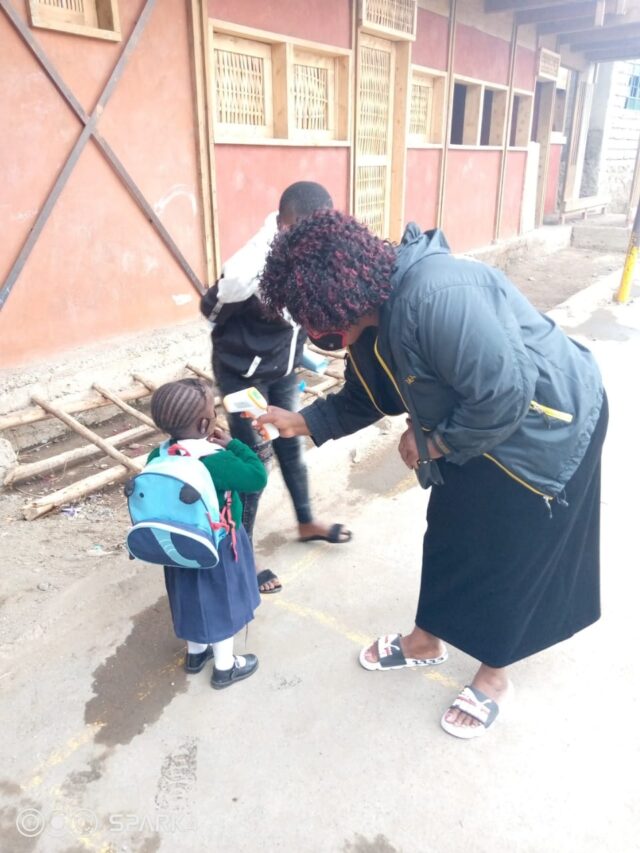
We are also working to improve the reading proficiency of learners in Mathare through story book reading and spelling bee challenges. Our mentors are still going door to door to give weekly revision worksheets on math and English, as well as offering change talks on leadership, social transformation and peace building.
ONE’s education campaign is crucial in addressing the global learning crisis that is affecting millions of children, including those in underserved communities like Mathare. It is imperative that we join the campaign and advocate for increased funding and expenditure on education needs at national and communal levels. The Kiota project continues as we try to help learners in the little way we can; and further ensure that our kids acquire the knowledge and skills needed to promote sustainable development in our communities. We strive to be inspired by the words of Nelson Mandela “Education is the most powerful weapon which you can use to change the world.”
